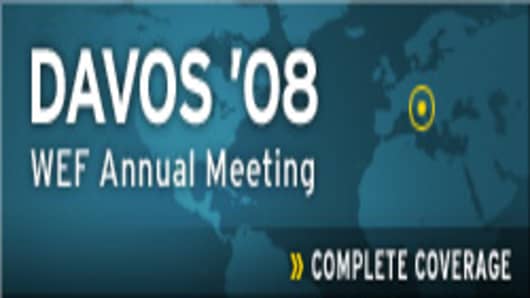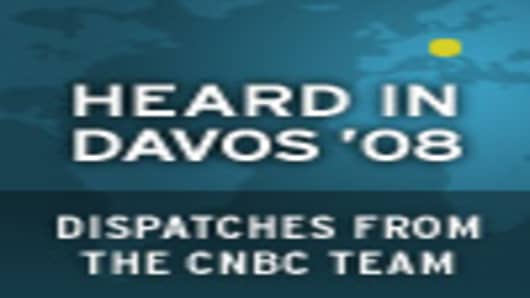If you had to pick a place to hold a summit of corporate and political decision makers Davos wouldn't be it. It's too hard to get to (two hours from Zurich) and the snow- or slush-covered streets ensure there is always a risk that senior attendees slip and damage more than their pride. And yet, every year it gets bigger, attracting a larger crowd.
Many of the faces are the same -- it has become a fixture on many European and American CEO's calendars -- but now it is starting to pull in the new kids on the block from Russia, China and India. That's a good thing because as business has gone global, the same challenges face us all: whether it's environmental, financial or social.
Again the official meetings and panels covered many of those issues.
But, this year it is the news outside Davos that is the meat of conversations in corridors and drinks receptions.
Is the US in recession? Will a $150 billion stimulus package of tax cuts prevent recession? Can Europe avoid a slowdown? Should my business be chasing more growth in emerging markets?
Again CNBC capitalized on the presence of key decision makers to get answers. Our big debate this year is titled "Who's in Charge?" (The special program airs at 8 pm (20:00) CET on CNBC Europe Sunday, Jan. 27.) We sought to identify leadership and credibility, with particular focus on the shift of wealth and power from east to west.
In our programming for "Squawk Box Europe" and "Worldwide Exchange," Ross Westgate and I tapped the brains bank at Davos to get insight into the current market volatility and the impact of the SocGen subprime writedown and 5-billion-euro trading scandal. And throughout the week Anna Martin and the many backroom boys and girls on the production team built stories from Davos into our daily programming.
The World Economic Forum has its critics -- and even some attendees I spoke to were getting pretty fed up with airport-style security arrangements that cut into meeting times -- but it has a role. There are very few events of its size and stature that have such a cross-sector, cross-religion, and international dynamic. It is important that people meet, talk and understand the headwinds facing the global economy in 2008.
And we are very happy to have been here to help broadcast those conversations.




